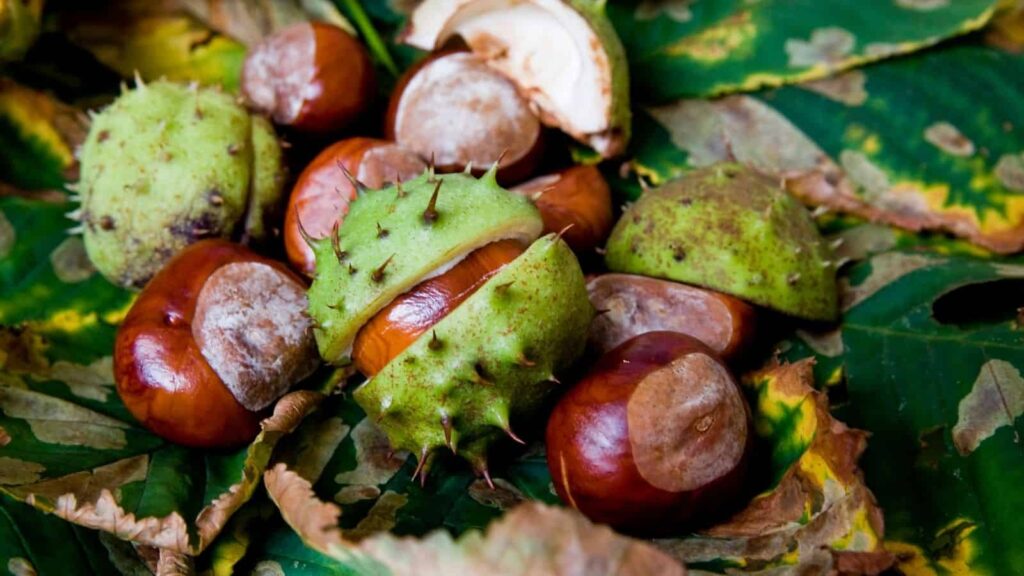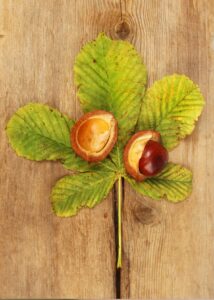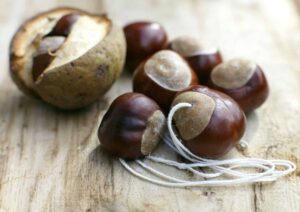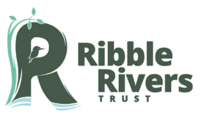It’s officially conker season! These glossy brown seeds and their spiky green cases can be found across the country, and every September children start collecting conkers, hunting for the very best specimens.

Did you know that conkers are the seeds of a horse chestnut tree? These trees are easily recognisable thanks to their large hand shaped (or palmate) leaves. You’ll rarely find horse chestnut trees or conkers in woodlands, but they are common in parks, gardens, and streets.
Here are our top five conker facts;

Conkers probably don’t scare away spiders. You might have heard that conkers contain spider repelling chemicals, or that, if they touch a conker they curl up and die. However, it seems that this is a myth, and there is no proof for this!
Conkers help to fade bruises. This fact is true! Conkers contain aescin, which is an anti-inflammatory and can help with bruises, sprains, and other minor ailments. In fact, you can buy medicine containing aescin for just this purpose.
You can make flour from conkers. Although technically true, we really don’t recommend it. In Victorian times it was pretty common to make conker flour. However, conkers are poisonous, so don’t try this one at home!
Placing conkers in your pockets might help ward off moths. Conkers contain a chemical called triterpenoids, which moths hate. Simply pop a conker or two in the pockets of your clothes, and they’ll slowly release this chemical as they dry out.
Vikings used conkers as soap, and so can you! Conkers contain saponins, which are a little like soap. The Vikings, who were very well groomed (at least by the standards of people living in 800-1100 CE), used crushed up conkers like bars of soap.
How to craft the perfect conker
If you want to play conkers, here are a few tips to get battle ready (with an adults help!).
1. Soak your conkers in vinegar for two minutes. This removes some of the moisture from the inside and hardens the outside. Make sure your conker is totally submerged.
2. Once your conker has been retrieved, pop it in the oven at 250° for two minutes. This removes more of the moisture and makes it even harder.
3. Make a hole using a hand drill, a corkscrew, or a hammer and nail. Don’t use a power drill unless you are really competent!
4. Once you’ve made a hole, thread your string through, tie at both ends, and make sure it’s secure. You are now ready for battle.

Collecting conkers
If you’d like to hunt for some conkers this weekend, here some recommendations. All of these parks are family friendly, easily accessible, and have rivers that you can visit.
Witton Country Park, Blackburn- River Darwen
Brungerley Park, Clitheroe- River Ribble
Avenham Park, Preston- River Ribble
Towneley Park, Burnley- River Calder
Victoria Park and Garden, Barrowford- Pendle Water
Thompson Park, Burnley- River Brun

